A potential lifesaver, HPV vaccine still proves a tough sell
Listen-
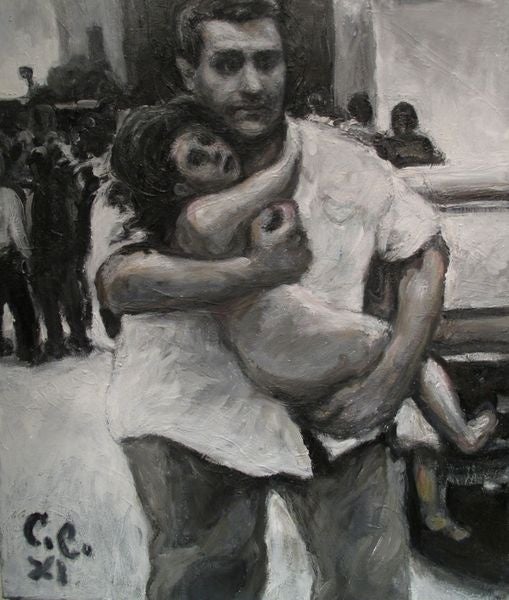
<p>" Russian Tragedy" (Courtesy of Chestnut Hill Gallery and Frame Shoppe)</p> <h3 class="r"> </h3>
-
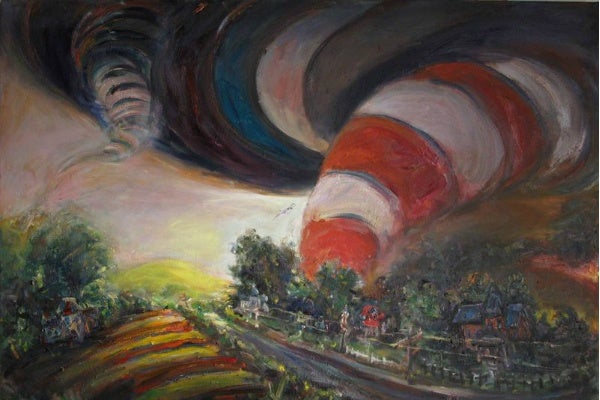
<p>"Striped Tornado" (Courtesy of Chestnut Hill Gallery and Frame Shoppe)</p> <p> </p>
-

<p>"Still Life on Purple" (Courtesy of Chestnut Hill Gallery and Frame Shoppe)</p> <h3 class="r"> </h3>
-

<p>"Nude" (Courtesy of Chestnut Hill Gallery and Frame Shoppe)</p>
-
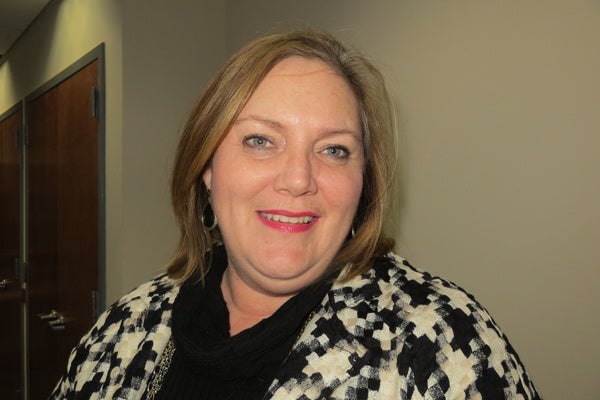
<p>Bucks County mom Irene Pontarelli's daughter got the HPV vaccine when she was 16. "Because I trust my pediatrician, I felt good about the decision."</p>
-
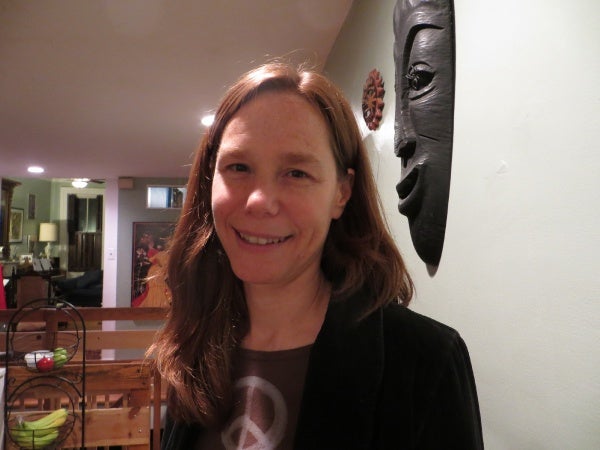
<p>Karen Cherubini, a Philadelphia mom, says she was surprised when her children's pediatrician recommended the HPV vaccine for her 11-year-old son.</p>
-
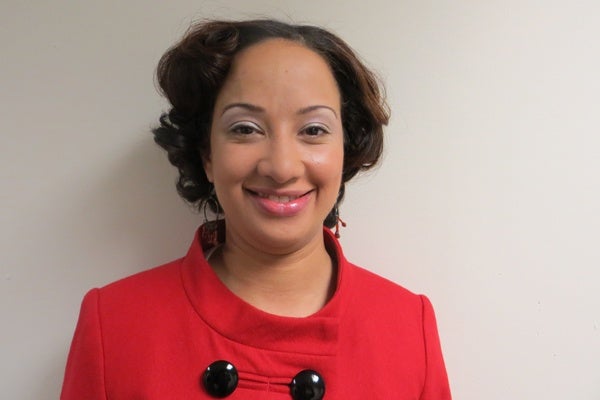
<p>Jillian Lucas Baker is an assistant professor at La Salle University. She says skills-based education helps families as they make the decision about the HPV vaccine.</p>
-
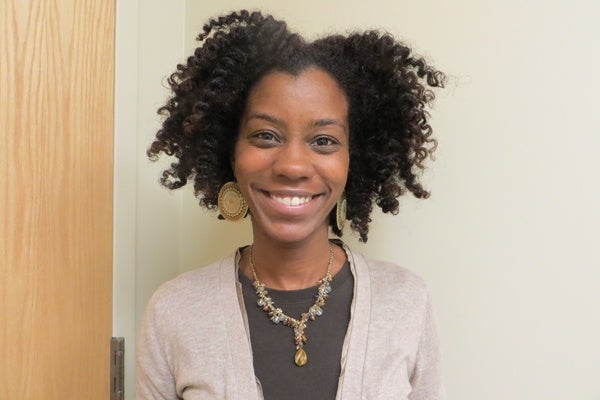
<p>Naja Fousheé helped recruit families into a University of Pennsylvania study of HPV education.</p>
The real test for a medical breakthrough or medicine sometimes comes after the clinical trials are complete and the U.S. Food and Drug Administration has signed off. One example: the vaccine against the human papillomavirus, or HPV.
“Between the mandate debates, the sex issues, the way it was rolled out, it got caught up in politics. It had a really, really rough start,” said Amy Leader, a health researcher at Thomas Jefferson’s Kimmel Cancer Center.
Public health experts have had a tough time convincing some parents that, No. 1, the vaccine is safe and, No. 2, that the shots should be one of the routine immunizations for preteen kids.
HPV can cause unsightly genital warts; in a small percentage of cases, when the virus lingers, it can lead to cancer of the cervix. It is the most common sexually transmitted infection among women in the U.S., but only about 50 percent girls have started the vaccine.
The shots are recommended for children age 11 or 12. That timing, public health officials say, is designed to make sure young people are immunized long before sexual contact.
Leader says the age recommendation has been “problematic.”
In most states the vaccines are not on the list of school-mandated immunizations, but Texas Gov. Rick Perry tried to take that step, and Rep. Michele Bachmann, R-Minn., made the vaccine an issue in the GOP presidential contest.
“To have innocent little 12-year-old girls be forced to have a government injection through an executive order is just flat out wrong,” Bachmann said during a debate of GOP candidates on CNN.
Some say sex issue makes it tough to talk about
iPertussis and tetanus vaccines also are recommended for adolescents, but whooping cough and the lockjaw are not spread through sex. Some parents and doctors are uncomfortable having a conversation about a vaccine for a sexually transmitted disease with a child who may not have hit puberty yet.
Leader says in one study, researchers asked doctors why. “The doc would say: ‘Eeh, I just got a sense from mom that we didn’t want to go there yet,'” she said.
Looking to better understand the barriers to the HPV vaccine, a team of Philadelphia health investigators took education directly to families. Leader, who was one of the researchers, says when you gather moms at rec centers in small groups, tell them that “cervical cancer kills” and that “the HPV vaccine is a good thing for their daughters,” those families are more likely to get the vaccine.
The Pennsylvania Health Department paid for that study but, despite the findings, the way the health system sells the vaccine to moms and dads hasn’t really changed.
“Competing interests, money, time. Who knows? It gets caught up in all these other things in public health that we have to worry about,” Leader said. “Obesity, asthma, diabetes and healthy lunches. The list goes on and on in public health.”
Commercials stumble on conveying message
Money’s tight for health officials, but drugmaker Merck & Co. invested big in a marketing campaign for its vaccine, Gardasil.
In the ‘one less’ commercials models mention the thousands of U.S. women diagnosed with cancer each year. The ads featured independent-seeming girls and a catchy song. Leader asked girls in her study about the ads.
“They knew the commercials, they recognized them. They could sing the jingle … They knew all about that,” Leader said. “Then I said ‘OK, what’s the message, what’s the health topic here?’ … Silence.”
“I don’t think a quick commercial is going to do it,” said La Salle University disease prevention researcher Jillian Lucas Baker. “There’s too many other factors that go along with it that you kind of just can’t gloss over.”
Even administering the HPV shots is complicated. The vaccine requires two follow-up shots and parents forget to bring their children back.
Another wrinkle stems from the suggestion early on from some conservatives that the vaccines would make children more likely to have sex.
Baker says some moms asked about that issue during the study of HPV education among Philadelphia families. “If I get my daughter vaccinated for HPV, am I then saying it’s OK to have sex,” they asked.
An October 2012 study dismisses the idea that girls who get vaccinated are more likely to be sexually active. But when sex isn’t at issue, parents are concerned about safety.
There are entire Web sites dedicated to stories like this one posted on YouTube.
“In 2007, I was scared into taking the Gardasil shot,” says a young woman in the video. “After my second shot, I became very, very ill … I lost the ability to walk, I started falling down, I had head pressure.”
CDC finds HPV safety on par other vaccines
Philadelphia family doctor Christopher Chambers counters that anecdotal reports are not the same as research.
“Yes, there are going to be people who have developed medical problems some time in relationship to when they got the vaccine,” Chambers said. “We know that things can happen. A person can get a shot, a vaccine, and the next day get hit by a SEPTA bus. But we wouldn’t say the vaccine had anything to do with it.”
The federal government tracks health concerns over vaccines from the public. In a 2009 study, the government looked for patterns in those reports, and reviewed medical records and the Centers for Disease Control and Prevention said the safety of the HPV vaccine is on par with other vaccines recommended for children.
Chambers, a longtime HPV vaccine researcher with the Thomas Jefferson University Hospitals, has gotten funding from the HPV vaccine drugmakers Merck and GlaxoSmithKline.
The HPV vaccine is “extraordinarily safe,” Chambers said. “On the order of hep B vaccine, which is given to infants on the first day of life.”
Like HPV, hepatitis B is largely passed on through unprotected sex. Different from the HPV vaccine, the hep B vaccine is a school mandate in most states and widely accepted.
Chambers talks about the health decisions he’s made for his own sons when he discusses the HPV vaccine with the parents of his patients.
“Particularly for the boys, where I think there is less public discussion about the vaccine, it’s very important for them to know this is something that I endorse for my own kids,” Chambers said
Health officials only recommended the vaccine for boys about a year ago.
When certain HPV strains become chronic in the body, infection can lead to anal or oral cancer. Chambers says he used a medical journal article about genital warts to drive home that point with his son.
“I said: ‘Hey Rex, come on over here and take a look at this picture.’ He said ‘Oh my God, Dad you didn’t have to show me that.’ That’s just one of the things that the vaccine can help prevent,” Chambers said.
Chambers said, actually, he does not get much pushback from parents when he offers the vaccine to longtime patients.
Trust in a doctor can make the difference
It was a recommendation from a trusted doctor that convinced Bucks County mom Irene Pontarelli.
“Just talking to my daughter’s pediatrician, she said I want you to make up your mind, but my recommendation is that she get it,” Pontarelli said. “Because I trust my pediatrician I felt good about the decision.”
That kind of long-term relationship was missing for Karen Cherubini, a mother of two. She and her children’s new doctor were just getting to know each other this summer when the pediatrician suggested that Cherubini’s son get the HPV shot that day.
“I was not even close to ready. I was completely thrown off,” said Cherubini, a science teacher, who lives in Philadelphia.
“I had no expectation that my son would need it, first of all. And second of all, at age 11,” Cherubini said. “He’s not sexually active. He’s not there yet, thank goodness. You know a sexually active teenager is a much different parenting scenario than where I’ve been. And so this is definitely new territory.
“In learning more, I have realized that this is one I’m going to have to trust the experts on,” she says.
Nonetheless, Cherubini said she still worries about long-term safety.
“These vaccines have been tested all over the world but not over a lifetime,” she said.
Health researcher Amy Leader, who’s currently working on a new HPV education study, this time funded by Merck, said lots of parents are on the fence.
“We are hitting this from all these different angles, I don’t know what else needs to be tried,” Leader said. “It’s a government-recommended vaccine, it’s rolled into the regular schedule. We’re educating parents, providers, systems. I think we just have to keep working at it.”
Health officials say they’ll continue to promote the vaccine because HPV is a very common infection. It usually goes away on its own, but when it doesn’t, it can lead to deadly cancer.
The HPV vaccine saga shows up the tension between the job that public health people do versus the job moms and dads do — thinking about the needs, risks and health care access for a particular child versus an entire population.
WHYY is your source for fact-based, in-depth journalism and information. As a nonprofit organization, we rely on financial support from readers like you. Please give today.

